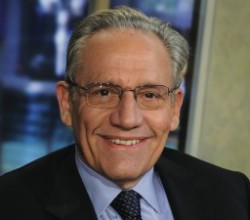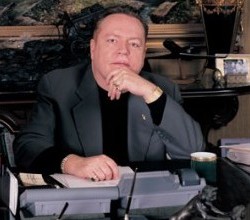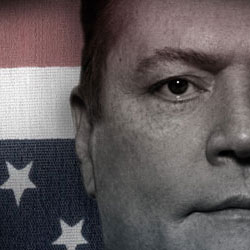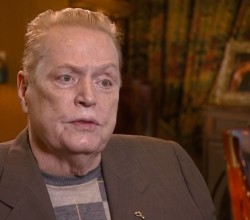From Alex Prud’ Homme
Saving Water Drop by Drop
THE AUTHOR OF THE RIPPLE EFFECT DELIVERS A GRIM WARNING ABOUT THE WORLD’S PRECIOUS RESOURCE
Alex Prud’homme interviewed by Maeve Vanessa Scanlon
At a time when we are concerned about the diminishing reserves of petroleum and other fossil fuels, Alex Prud’homme’s book The Ripple Effect: The Fate of Fresh Water in the Twenty-First Century sheds light on a natural resource that is becoming equally as scarce. In the following exclusive interview, Prud’homme discusses the depletion of our water supply, the potential for worldwide “water wars” and how we can all reduce our own ripple effect.
HUSTLER: First and foremost, what is the “ripple effect”?
ALEX PRUD’HOMME: This is essentially a series of consequences that impact water supply in ways most of us don’t understand. Sometimes those ripples are unintentional effects. Even the simplest things like washing your hands, watering your lawn or powering up your computer can have great ramifications that we’re not aware of. If you wash your hands with antibacterial soap, a chemical in there can survive the treatment process and get into waterways and can negatively impact fish. Same with herbicides that we use on our lawns to get rid of dandelions. There’s a substance [in herbicides] that inhibits the fishes’ ability to ward off disease. It may even be causing “intersex,” meaning that male bass fish are developing eggs through their testes.
That’s science fiction stuff.
It’s really spooky. I was down in Chesapeake Bay, near Washington, D.C., studying this with scientists. It’s really troubling because it turns out that the endocrine system in fish is very similar to that in humans.
Humans can be affected by these substances in the same way as fish?
Scientists are very concerned. There’s the potential that it could be turning humans into intersexes at some point in the future. That’s one set of ripple effects [just from] washing our hands or spraying our lawns to keep the weeds away.
[Editor’s Note: Pharmaceutical companies, hospitals and consumers have legally released into this country’s drinking water more than 271 million pounds of drugs and chemicals, including lithium, nitroglycerin, copper, antibiotics, anticonvulsants, mood stabilizers and sex hormones. At least 51 million Americans are drinking pharmaceutical- tainted water, and the federal government has chosen to turn a blind eye to this.]
You claim that using electrical power, like turning on a computer, can have a similar ripple effect.
That confuses a lot of people. When you leave a light on, you’re using up a lot of energy. Whether it’s nuclear or ethanol or solar or coal or gas, all of those power sources require lots of water. Every energy source has to run on industrial works or giant cooling towers or processing plants of some sort. Not only do they use lots of water in these processes, but they have to dispose of their waste. Often, this seeps into the water supply. We don’t really think about the impact that getting energy to our homes has on the water supply, so we never connect those dots. But power is a huge water user.
It’s a strange dot to connect.
I started looking at this all across the country and started noticing this pattern. There are so many pressures on our limited water supplies—population, climate change, shifting diets, shifting demographics, all these new ways of using water—that we can no longer afford the luxury of being ignorant. We can no longer stick our heads in the sand and say, “Well, we don’t know the impacts.” Now we do know the impacts, and we have to start paying attention to this and start thinking about water in a new way and value it as a limited resource.
You point out in The Ripple Effect that this is becoming a global issue, but you did most of your research in the United States, right?
It’s already a global issue. I focused on the United States because any story that is local is global now. The pollutants that I found were basically in my backyard in Brooklyn, so I wrote about a giant oil spill that has been leaking into Brooklyn—right in the middle of New York, right in the middle of the most densely populated city in North America.
The Greenpoint oil spill has been leaking millions of gallons of crude oil from processing plants into the Newtown Creek over several decades. For over a century only very few people actually knew about it, and, until Deepwater Horizon [the BP oil rig responsible for the 2010 Gulf of Mexico disaster ], it was the largest oil spill in North America. It was even bigger than the [1989] Exxon Valdez spill, and only part of the spill has been cleaned up since the 1970s. I was shocked to find this.
Have the Environmental Protection Agency (EPA) and the Clean Water Act helped with water protection?
It’s been 40 years since the creation of the Clean Water Act, and nothing—or at least nothing more—has been done in terms of this problem. We signed a lot of these rules and regulations in the early 1970s, and—in our typical American way—we said, “Great! Okay, that’s done!”
The EPA and Clean Water Act were really good for their time, but that was almost 40 years ago. The world has changed, but [the laws] haven’t, and that’s a problem. The focus has shifted [in the government], so even the regulations that are good aren’t necessarily being enforced as they should be. This was one of the things that I found most shocking once I started looking at this situation closely. Being humans, we don’t do anything until we have hit a total crisis. But when it comes to water, if you wait for the crisis, we aren’t going to be here anymore. We can’t wait.
Why has the EPA been so ineffective?
The EPA itself has been under fire for a number of years. Its budget has been cut, and it has been highly politicized and highly criticized under everyone since Reagan—especially under the Bush Administration. In 2010, [President Barack] Obama gave the EPA its largest budget, but [recently] he’s been forced to cut it back. And now people like Michele Bachmann and Newt Gingrich are attacking the EPA, saying it’s a job-killing agency. The Republican Congress is attacking it also, trying to defund a lot of their antipollution programs and policies. As well intentioned as the Obama Administration has been on environmental issues in general, the EPA is having a tough time battling these lobbyists and Big Agriculture industries that don’t want to spend money to put in pollution controls.
In your book you mention “water wars.” What are they exactly?
Well, one thing I didn’t realize is that in the United States we don’t have just one set of water laws. The western water laws are based on the Spanish precedent, while the eastern water laws are based on the English precedent. And this has led to all sorts of interesting conflicts. Within that context, some states have their own individual laws and regulations that are unique to just that individual state.
It’s leading to conflicts between neighbors, not just countries, especially in Texas, which has faced such a serious period of drought. In that state, the rights to minerals underground are different from the rights to the land above ground. Essentially, in states like that you can stick a straw into your neighbor’s land and drain their water. It’s perfectly legal. That has led to all sorts of tensions over the years.
T. Boone Pickens is an oil and gas billionaire, and he told me when I went to visit him in Dallas that “the hydrocarbon era is over! Water is the new oil!” Here’s a guy who’s made billions on natural resources, and he understands very well how these things work. He’s focused on water right now. Water can be piped from [aquifers in North America], and then sold to the highest bidder. So he may end up making another billion on water! (Laughs.)
But these “water wars” aren’t just developing in the United States. These controversies over water are global too. Look at China, which has the worst water pollution in the world. Look at the Koreas. The North Koreans have periodically released huge amounts of [polluted] water, which has surged right down a river into South Korea, and it has killed people. Even in Darfur, water has major implications.
It’s very possible that in the coming decades we could have an actual war over water—especially as populations grow and certain parts of the world dry out.
How do we prevent such a crisis?
It begins with the simplest thing: Pay attention to water! Be aware of your own ripple effect. Don’t flush pharmaceuticals down the toilet because—guess what?!—they end up in the water supply. It is much deeper than that though. We have technologies that allow us to use water much more carefully now than before. We can conserve water and be more efficient, so we should be using these new resources and methods. There are dams, desalination methods and sewagewater recycling projects, just to name a few.
Sewage-water recycling? Are you saying we are drinking water that once contained sewage?
(Laughs.) Yes, some people are! This notion of recycling human sewage is very interesting. On the face of it, it’s kind of disgusting. The process is called “ground water replenishment system.” It’s quite amazing. It’s similar to desalination, in that it sucks all the pollutants out of the sewage. [The process] takes all the nasty stuff out of the water, then it pumps the water back into existing natural groundwater supplies. When it comes out of the [recycling] plant, it is so clean, it’s called “ultrapure” water. That means it’s actually cleaner than natural water. They have to add minerals back into it just so it can be used as drinking water.
Where is this sewage recycling being done?
The one I researched is in California. In my research I spoke to someone working at the project in Orange County, and he said to me, “We live in the middle of a desert, and our population is booming. We’re doing this not by choice but out of necessity. We have a growing population, a greater demand for water, and at the same time a rising amount of sewage. So how do we solve these problems with one sort of artful step?” The answer for them was this sewage-recycling project.
What can we do to reduce our own personal ripple?
Today there are all sorts of things like low-flush toilets and low-flow showerheads. We have side-mounted washing machines, which are much more efficient. These methods sound unsexy and basic. But when they are taken in the aggregate, they have this cumulative effect. All the little efficiencies really add up.
We have to start adjusting ourselves to this new reality, whether we like it or not. And whether we caused it or not, the fact is that conditions are changing around us. Let’s say you live in a place like Australia, where for years you have record-breaking drought followed by record-breaking floods. You feel like you’ve been biblically cursed or something. (Laughs.) It sounds funny and extreme, and it sounds like the Bible, but this is the kind of thing that is happening.
——————————–
For more about The Ripple Effect: The Fate of Fresh Water in the Twenty-First Century and its author, visit AlexPrudhomme.com








